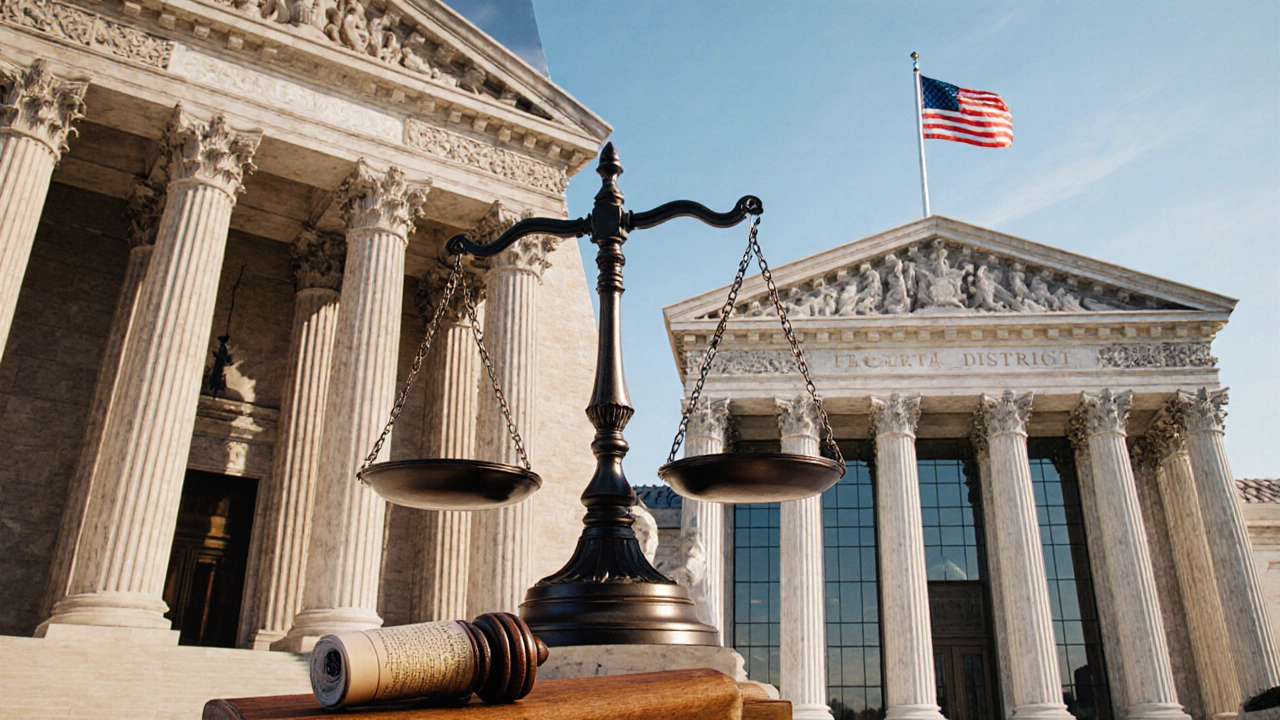Federal Jurisdiction: What It Is and Why It Matters
When navigating the U.S. legal system, Federal Jurisdiction, the power granted to federal courts to decide cases arising under the Constitution, federal statutes, or treaties. Also known as federal courts’ authority, it determines which disputes can be heard in a national forum rather than a state one.
One key neighbor of federal jurisdiction is Constitutional Law, the body of rules that outlines the structure of government and the rights of individuals. Constitutional law sets the boundaries for what the federal government can regulate, and those boundaries directly shape the scope of federal jurisdiction. In practice, if a case raises a constitutional question, a federal court can step in because the Constitution itself confers that power.
Another cornerstone is the Supreme Court, the highest court in the United States, which has final authority over federal jurisdictional issues. The Supreme Court often decides whether lower federal courts have proper jurisdiction, especially in cases that involve conflicting state and federal laws. Its rulings create precedents that tell every other federal tribunal how far its reach extends.
How Subject‑Matter Jurisdiction Connects
Federal jurisdiction is a broad umbrella, but it breaks down into more precise categories. Subject‑Matter Jurisdiction, the authority to hear a specific type of case, such as bankruptcy, patent, or federal criminal matters, is a sub‑type of federal jurisdiction. When a plaintiff files a lawsuit about a federal trademark, the court examines whether it has subject‑matter jurisdiction before proceeding. This relationship forms a semantic triple: Federal jurisdiction encompasses subject‑matter jurisdiction, which shapes the cases a federal court can entertain.
Closely related is the concept of Federal Courts, the district, appellate, and specialized courts that operate under the authority of the United States Constitution. Federal courts are the venues where jurisdiction is exercised. They include district courts that handle trials, circuit courts that review decisions, and specialized courts like the Court of Federal Claims. Together, they form the infrastructure that makes federal jurisdiction functional.
Why does all this matter for everyday readers? Because the type of court handling your case affects procedural rules, available remedies, and even the speed of resolution. For example, a civil rights claim filed in a federal district court may benefit from nationwide precedent, whereas a similar claim in a state court might hinge on local statutes. Understanding federal jurisdiction helps you choose the right forum and anticipate how a case will progress.
Federal jurisdiction also interacts with practical issues covered in our article collection. Topics like “Highest Paying Law Specialties” often highlight corporate lawyers who work primarily in federal courts, while “Shortest Law Degree Paths” mention pathways that prepare students for federal practice. Even “Cybersecurity Threats Explained” touches on federal statutes that define cybercrimes, showing how jurisdiction determines which agency prosecutes a breach.
When you’re dealing with matters such as marriage registration, consumer rights, or employment disputes, the question of whether a federal or state court has jurisdiction can change the legal strategy. For instance, a consumer complaint under the India Code Consumer Protection Act may stay in a state tribunal, but a cross‑border data breach could land in federal court under a U.S. statute. Recognizing these jurisdictional shifts saves time and money.
In short, federal jurisdiction is the legal gatekeeper that decides which cases belong in the national system. It draws its limits from constitutional law, is interpreted by the Supreme Court, and operates through the network of federal courts. Below you’ll find a curated set of articles that explore salary trends for federal‑focused lawyers, fast‑track law degree options, cybercrime legislation, and more. Dive in to see how jurisdiction shapes each of these areas and to get actionable insights for your legal journey.

How Do You Know If You Have a Federal Case?
Learn how to tell if your civil case belongs in federal court. Understand federal jurisdiction rules, common cases, and what to do if you're unsure where to file.

When Does a Civil Case Go Federal? Key Factors Explained
Learn when a civil lawsuit shifts to federal court, covering federal question, diversity, exclusive statutes, removal rules, and a practical checklist.